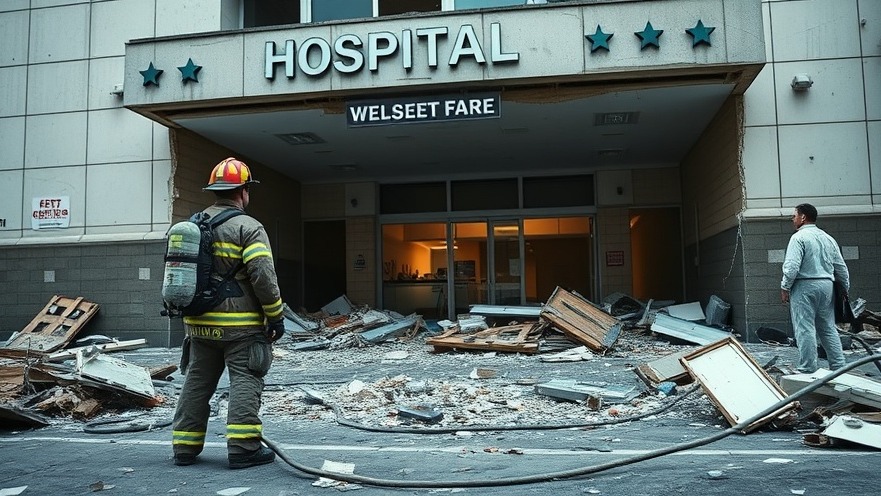
The Impact of Iran's Missile Strike on Israel's Healthcare System
In the early hours of Wednesday morning, a devastating missile strike from Iran targeted Israel's largest hospital located in southern Israel, leaving over 700 patients in a precarious situation. The attack not only raises questions about security but also brings immediate concerns about the impacts on healthcare amidst a volatile geopolitical landscape.
Context: The Latest Developments in U.S.-Iran Relations
This latest incident occurs against the backdrop of increasing tensions between the U.S. and Iran. The Israeli Prime Minister, Benjamin Netanyahu, is now pressing U.S. President Donald Trump to participate in a broader military response, which includes halting Iran's nuclear ambitions. The urgency of this request is heightened by the unfolding humanitarian crisis as patients remain under threat.
The Ripple Effect on Regional Conflict Dynamics
The repercussions of this strike extend beyond the hospital walls, deepening the already complex dynamics of Middle Eastern conflicts. As both countries prepare for possible escalation, it is crucial to analyze how other neighboring nations might react. Alignments and alliances may shift, potentially involving other countries that have vested interests in the region's stability.
Future Predictions: What’s Next for U.S. Foreign Policy?
Analysts are observing the situation closely to predict how Trump's administration will respond. Historically, U.S. involvement in direct military actions in the Middle East has led to widespread implications, both locally and globally. Could this incursion trigger a new wave of military engagements or does it signal a pivot toward diplomatic solutions?
Counterarguments: Voices of Restraint Amidst Escalation
While many call for retaliation, there are strong voices advocating for restraint. Experts in international relations argue that military action could escalate the conflict further, resulting in more loss of life and destabilization across the region. This perspective emphasizes the importance of dialogue over military engagement, seeking to promote long-term peace and security.
Emotional Resonance: Understanding the Human Impact
The strike on the hospital highlights the harrowing human cost of war. Patients—many of whom are already vulnerable due to illness—now find themselves in heightened danger. The international community often contemplates the political ramifications of such attacks, but the emotional toll on families and communities must not be overlooked. The human element serves as a critical reminder as discussions around military response unfold.
Taking Action: Broader Implications for Citizens
As civilians in Israel grapple with the impact of this incident, the effects will reverberate across the globe. Citizens can advocate for awareness and support humanitarian efforts aimed at assisting those affected by the strike and ongoing conflicts. Understanding the complexities of this situation invites individuals to engage in dialogue and advocate for peaceful resolutions rather than escalations.
In conclusion, the missile strike on the Israeli hospital is a reminder of the fragile nature of peace in the region. As actions unfold, it is essential for individuals to stay informed and engaged in conversations about international relations that transcend borders and affect lives globally.
 Add Element
Add Element  Add Row
Add Row 



 Add Row
Add Row  Add
Add 


Write A Comment